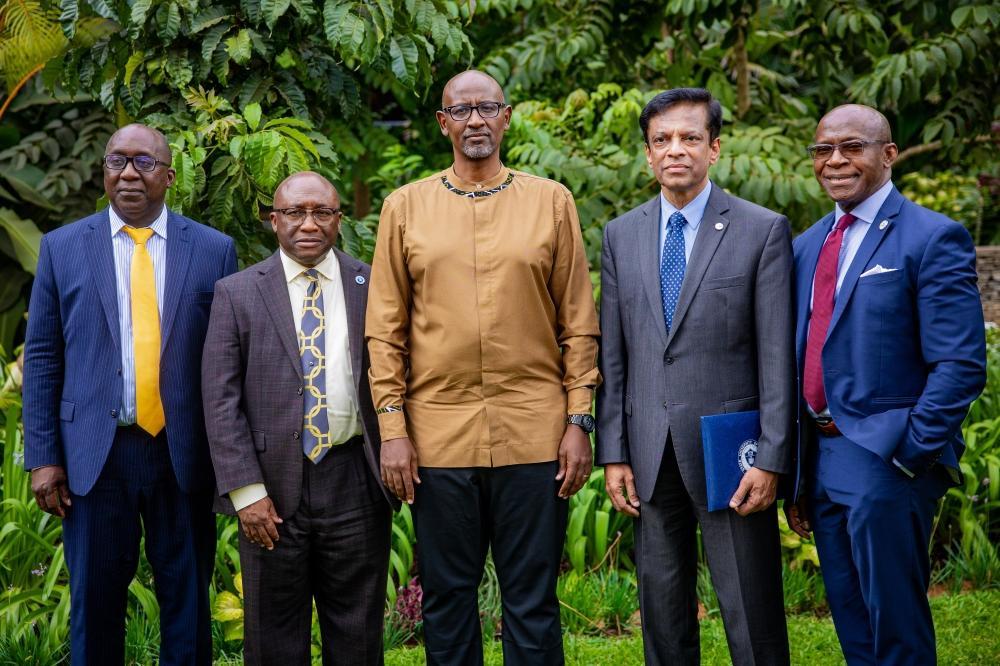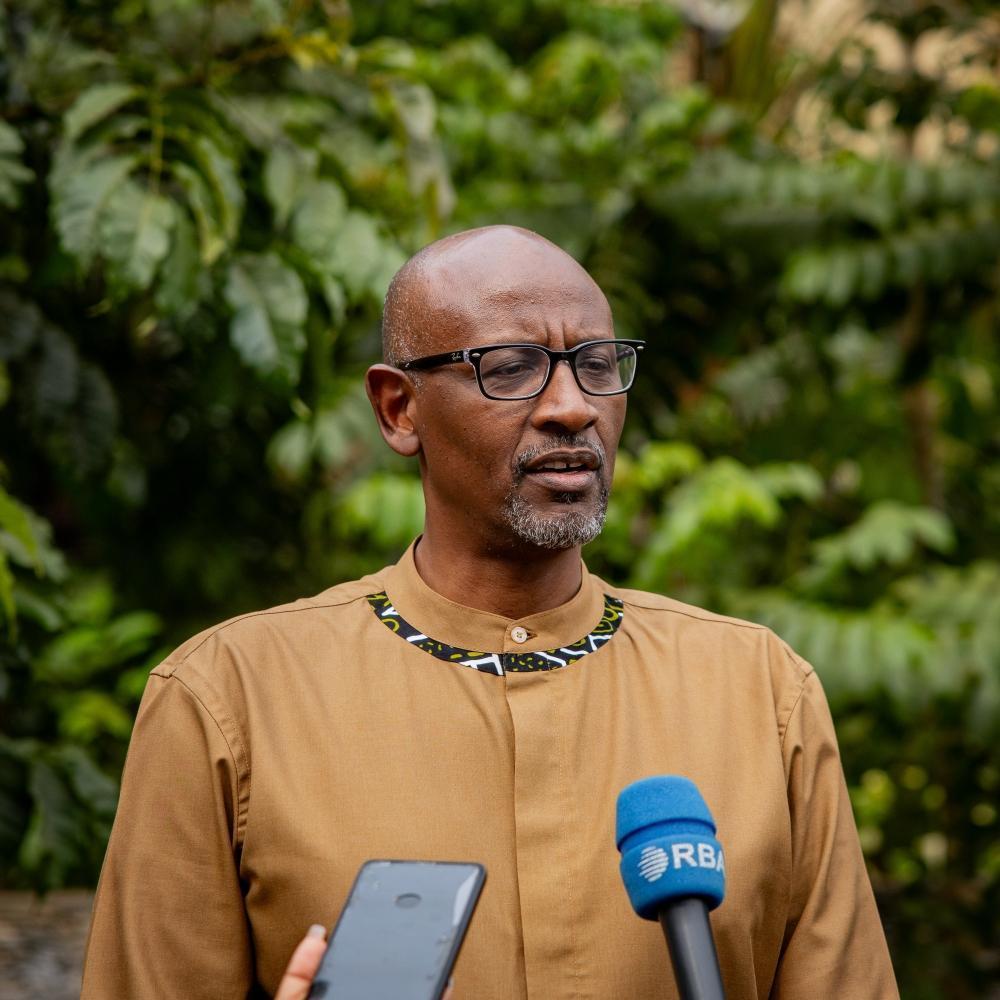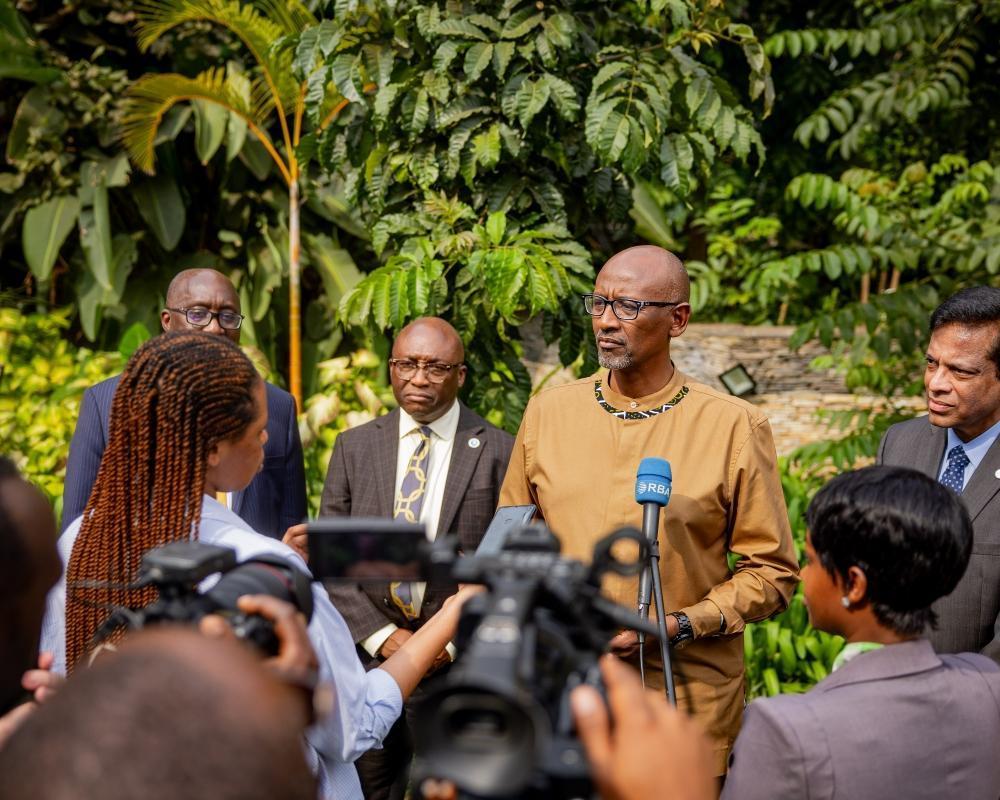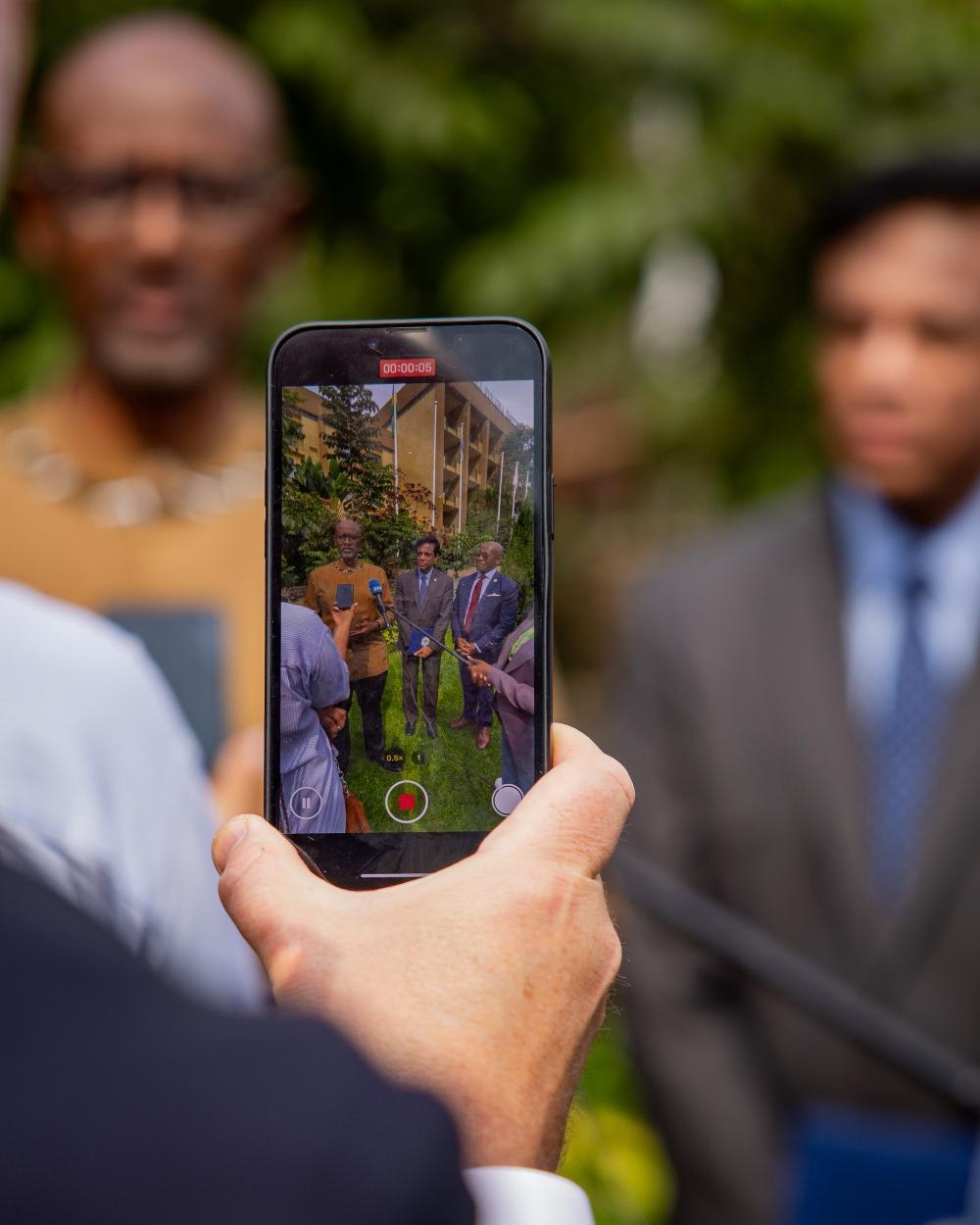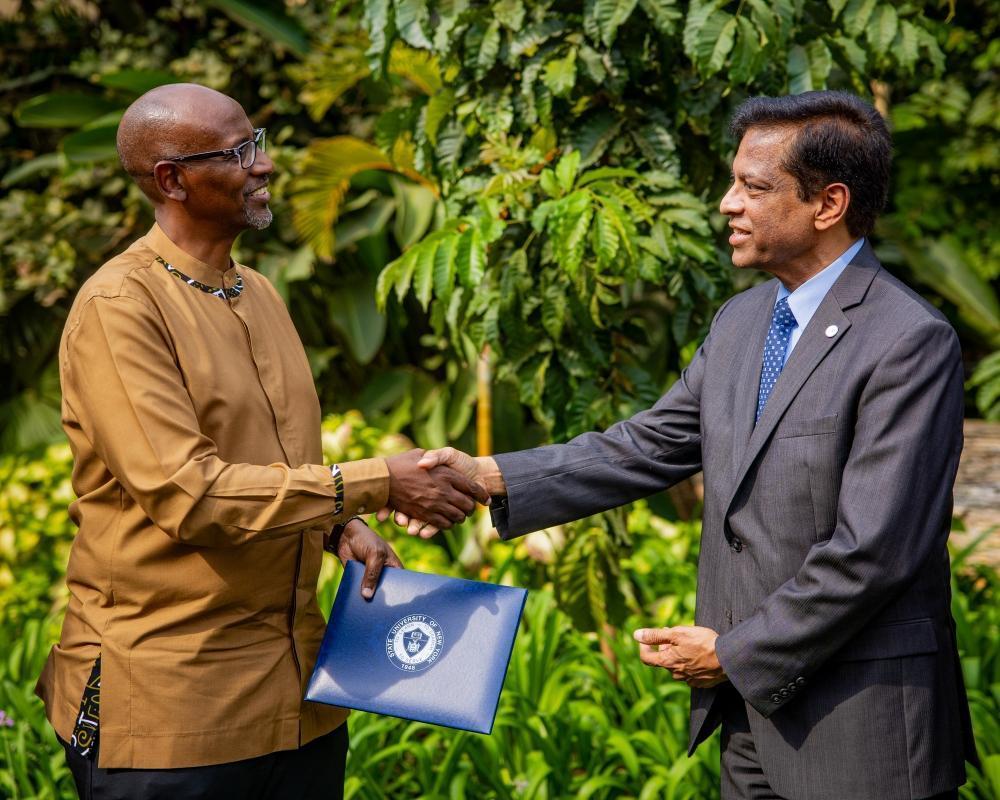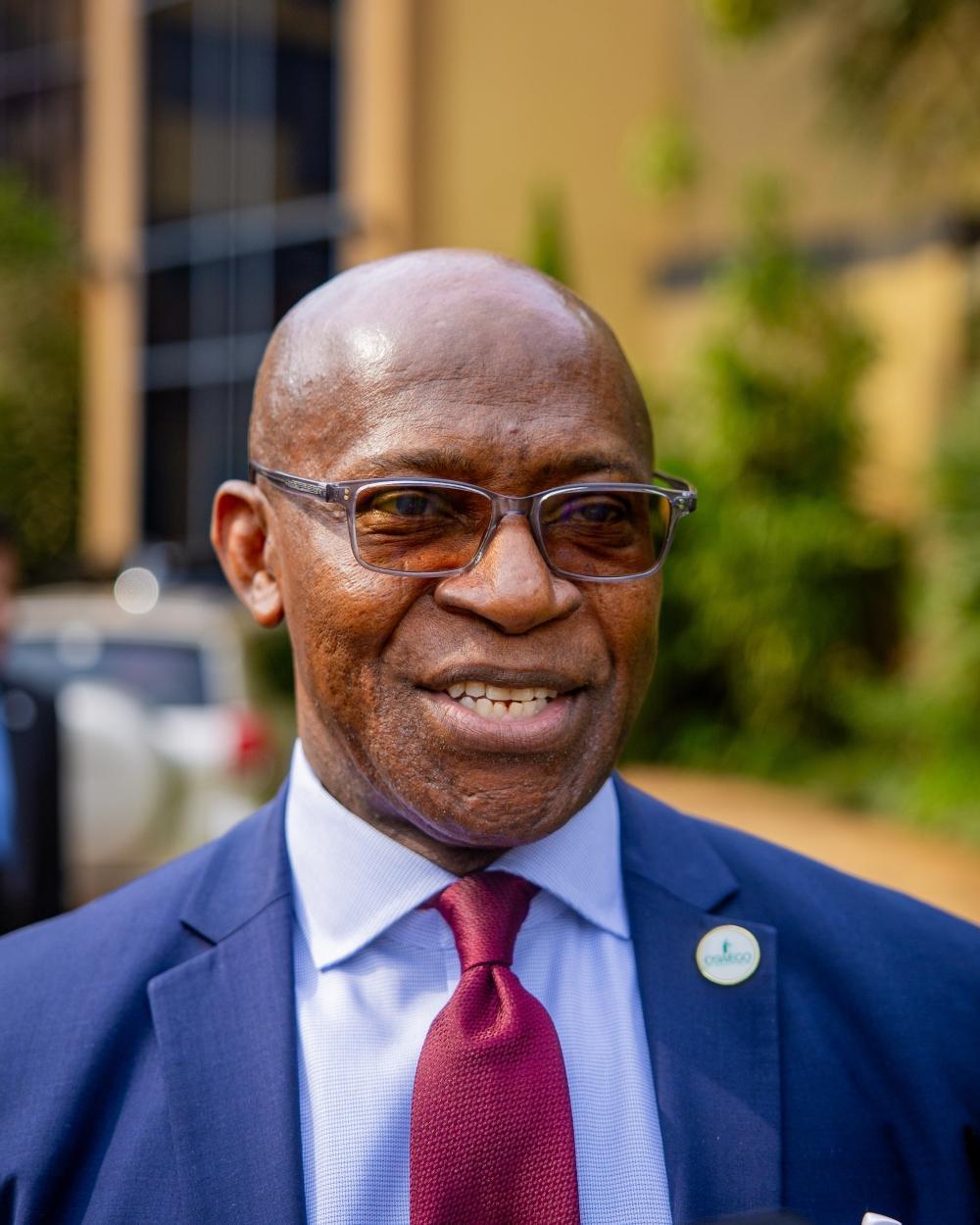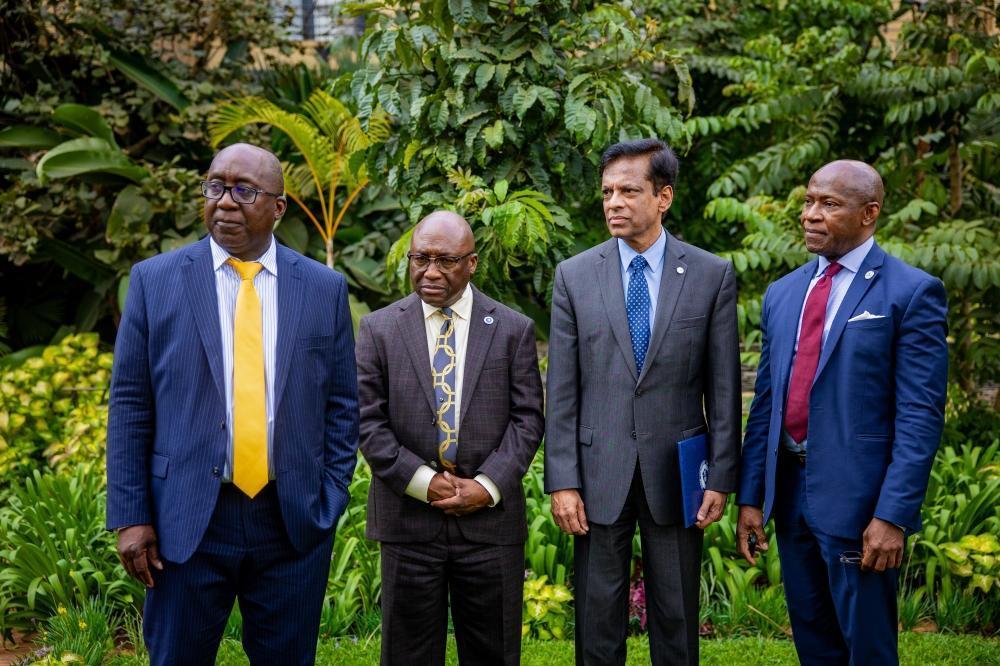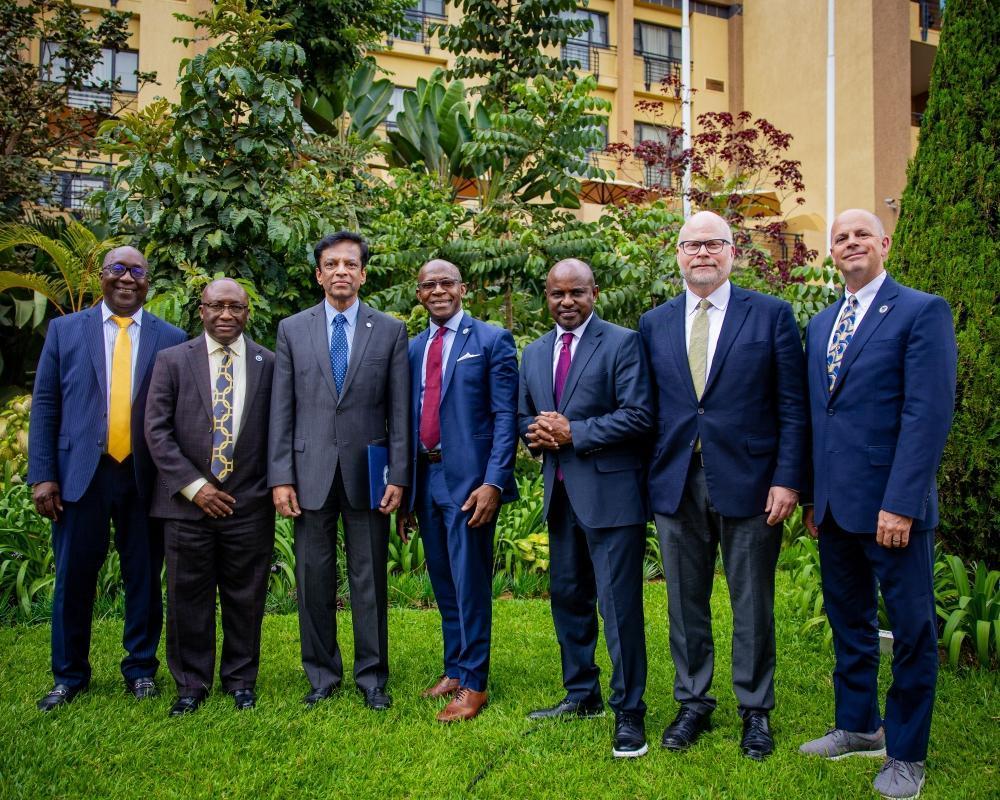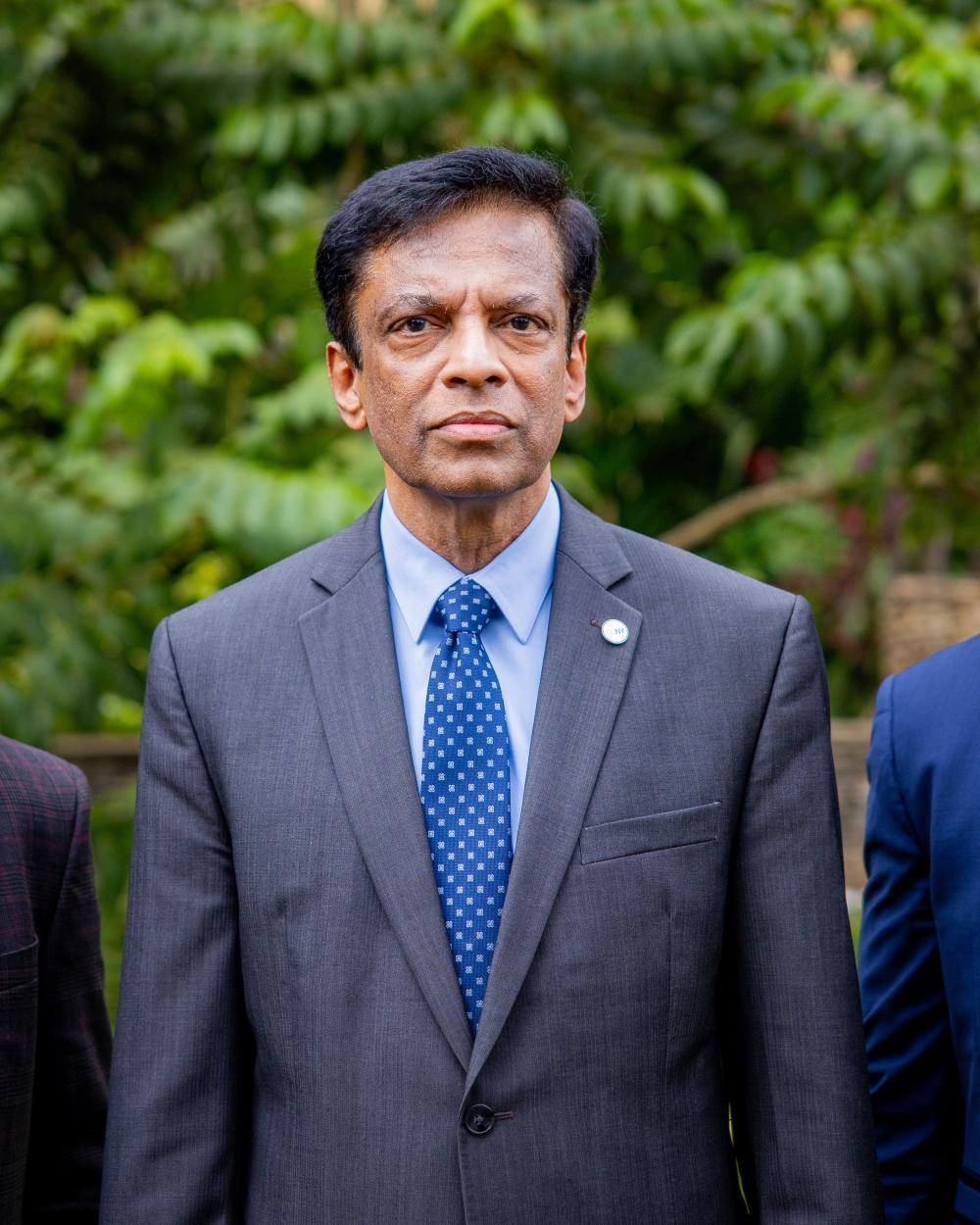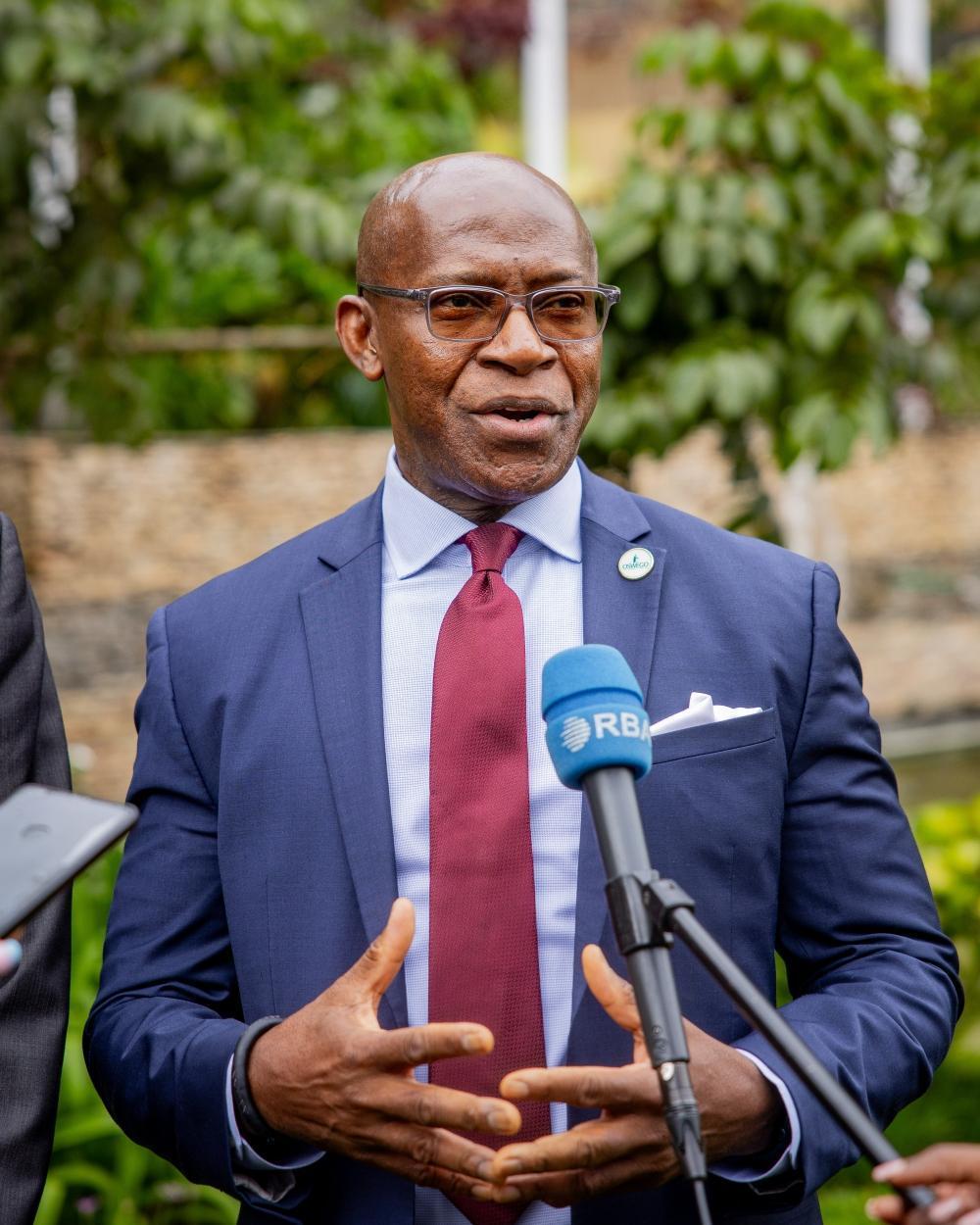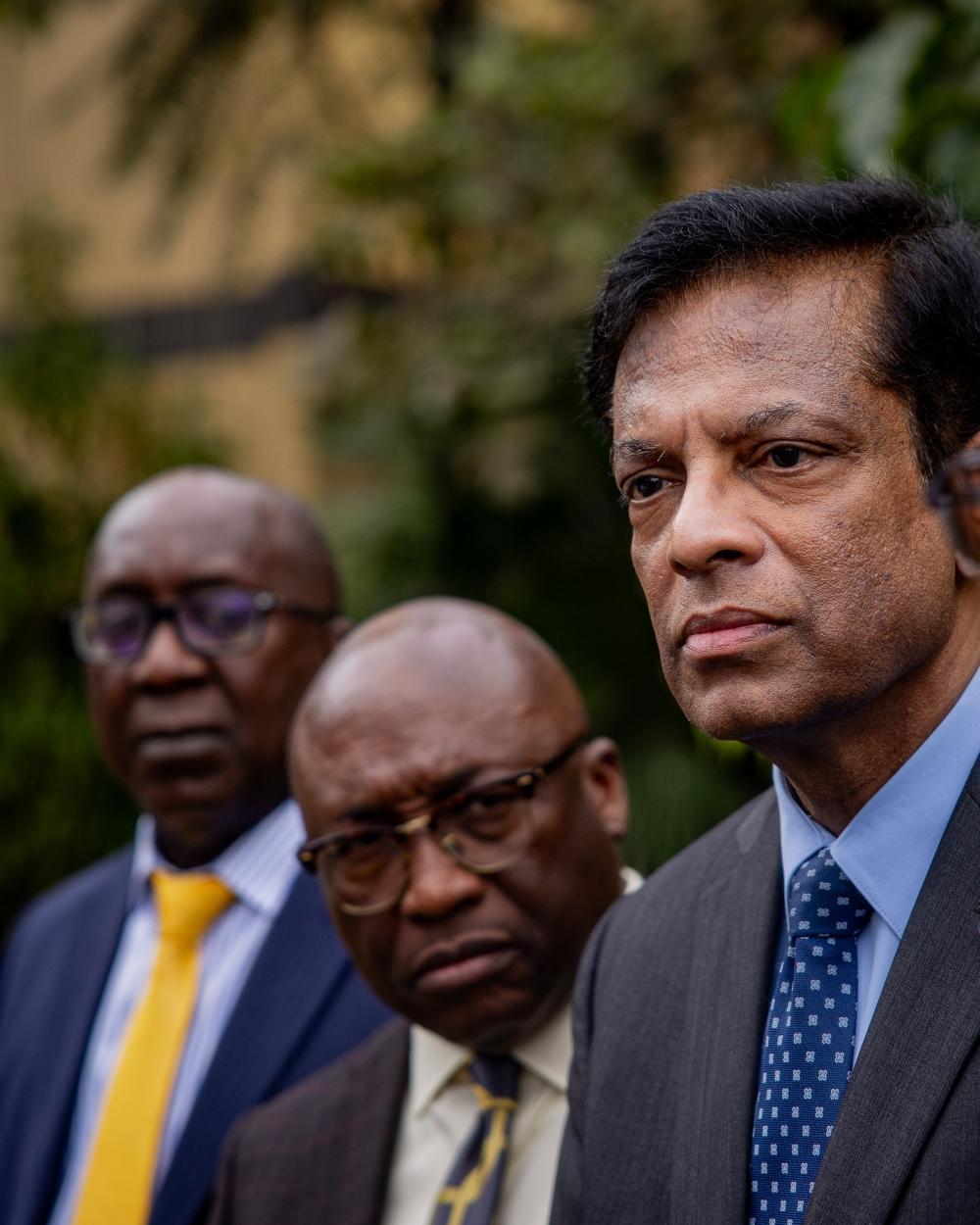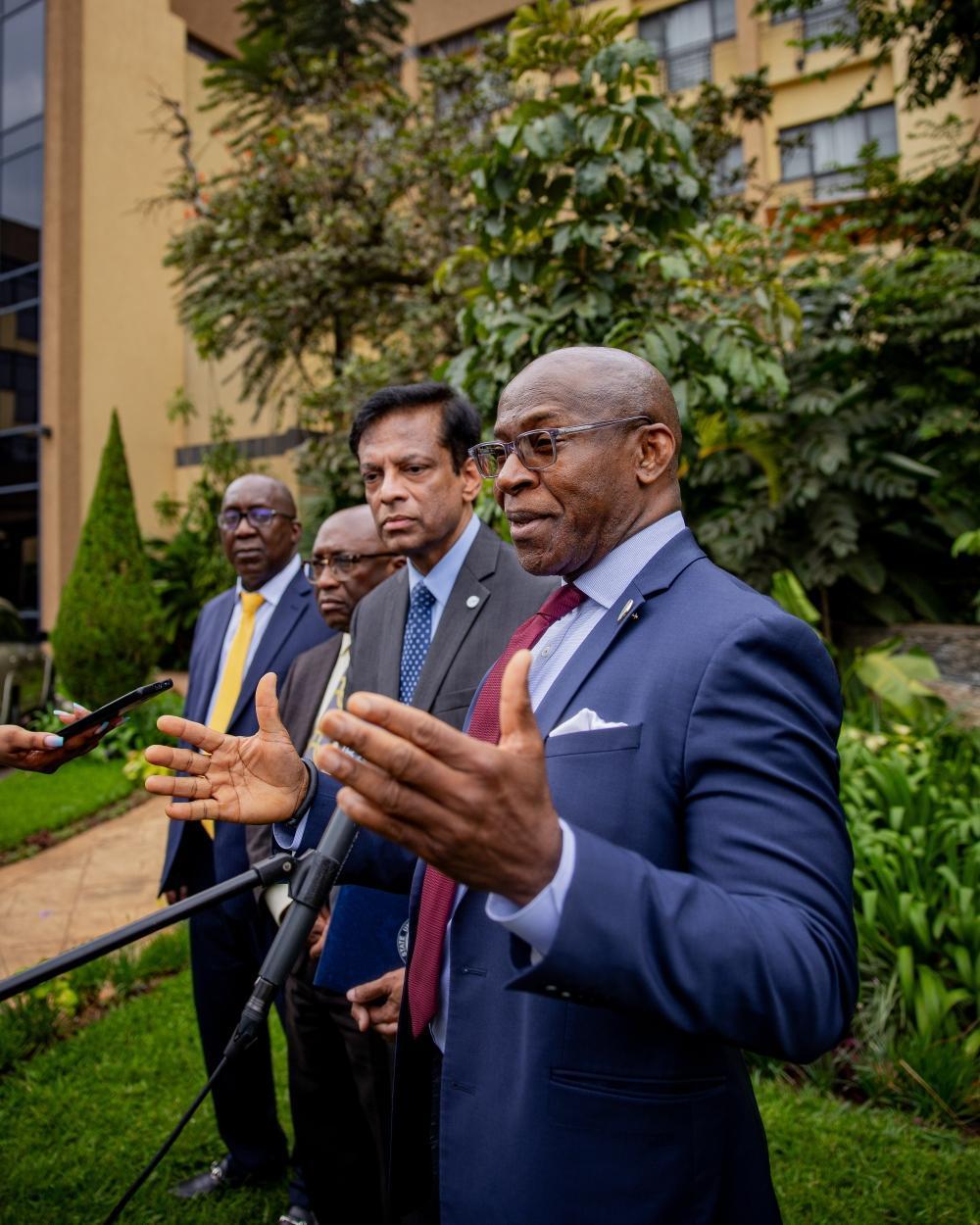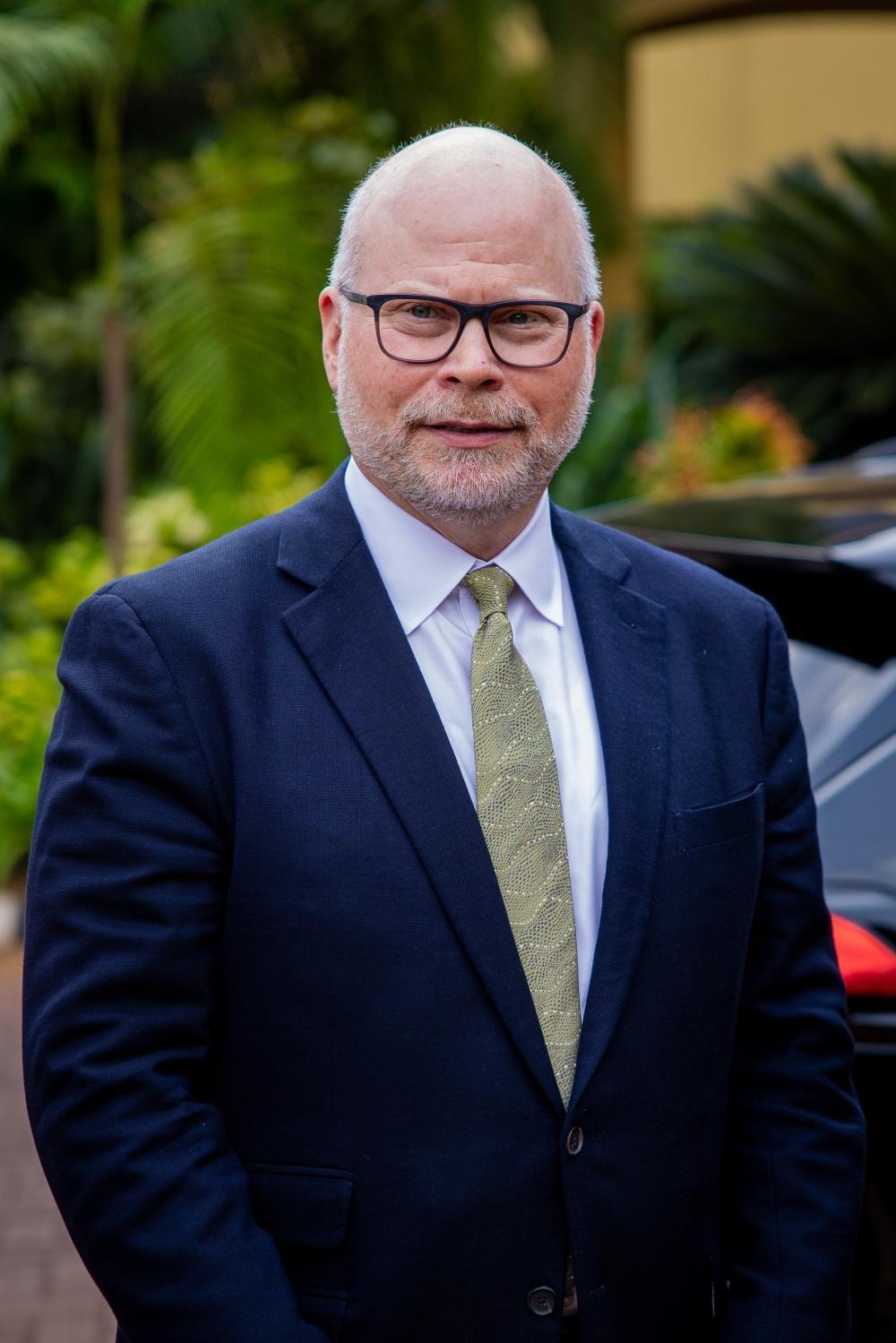Africa-Press – Rwanda. A new education partnership to boost academic growth between the State University of New York (SUNY) and Rwandan universities, was launched on Friday, July 18.
A delegation from the largest comprehensive public university system in the United States comprising 64 institutions, visited Rwanda for two days beginning from July 17 to 18. The team was led by Steven Kolison, the Executive Vice Chancellor for Academic Affairs and Provost.
They met with officials from the Ministry of Education, as well as leaders from the University of Rwanda and private universities. The discussions focused on academic cooperation under the ‘SUNY Africa Initiative.’ The collaboration aims to foster partnerships in key areas such as student and faculty exchanges, joint research, academic programme development, professional development for staff, and co-curricular programming.
Reflecting on their visit, the SUNY delegation expressed interest in the potential they observed in Rwanda and reaffirmed their commitment to bringing the collaboration to life.
“We are pleased with what we have seen, the commitments that the people have, and the opportunities that we have seen that has given us numerous possibilities. Our goal is to build long-standing academic programmes where students from Rwanda can come to the US to one of our 64 campuses,” Kolison said.
“And we also want our students to experience this beautiful country. We want our students to experience culturally and understand, become better global citizens. That is part of our global education.”
He noted that while students graduate and leave each year, faculty relationships are more enduring and form the foundation for long-term collaboration.
“Problem solving in the region with the skills that SUNY has and leverage the skills and knowledge that you have, local knowledge that your faculty have, and pulling them together to solve substantive problems of consequence to humanity. So, that is something that we strongly believe in, and we are excited about the possibility that we saw, and we plan to amplify that as we go forward.”
Kolison emphasized Rwanda’s openness to innovation and noted that the country offers a “proof of concept” for new ideas, making it an ideal partner. Rwanda is the second country, after Kenya, to benefit from the SUNY Africa Initiative.
The Minister of Education, Joseph Nsengimana, said the government values such partnerships as they align with the country’s long-term development goals.
“We are in the process of implementing His Excellency’s Vision of 2050, and in order for us to do this, we have to ensure that we have the workforce that can actually deliver on that vision,” he said.
“It is imperative that we ensure that our people are well educated, and also have enacted and engaged other institutions, such as SUNY, and have that experience so that the country can benefit from it. That is the Rwanda we all want, and we all deserve.”
The ministry is exploring new opportunities for students, including collaborations with high-tech companies for e-internships, allowing students to gain professional experience remotely without leaving the country.
Sylivie Mucyo, the Vice Chancellor of Rwanda Polytechnic (RP), expressed optimism about the outcomes of the partnership, particularly in technical education and skill development.
“We have common aspects based on the programmes we have and what we discussed. There is a lot to learn from them, especially when it comes to developing micro-credentials. And this is something that is being seen as needed in the industry where there is a need of upscaling and reskilling people depending on the change of technology as well as micro-credentials that can be stackable into degree programmes.
“We look forward to expanding our programme portfolio when it comes to engineering programmes. As the industry develops, there is a need for new programmes, and here we look forward to collaborating on programme development and design, but also on faculty exchange and joint research.”
Raymond Ndikumana, the Deputy Vice Chancellor for Strategic Planning and Administration at University of Rwanda, said they explored several areas for collaboration, particularly in science and technology.
“We discussed different aspects, but what came out mainly is our potential collaboration in geology, mining, online education, business education, and also computer engineering, where we are exploring advanced research for instance in quantum computing and quantum technologies,” he said.
“Those are things that we do not have yet in Rwanda. We are going to have that and we are working on a timeline of making this collaboration concrete by December.”
Ndikumana said that public and private universities in Rwanda are aligned in their support for this cooperation, recognizing shared interests and collective benefits across the higher education ecosystem.
For More News And Analysis About Rwanda Follow Africa-Press

